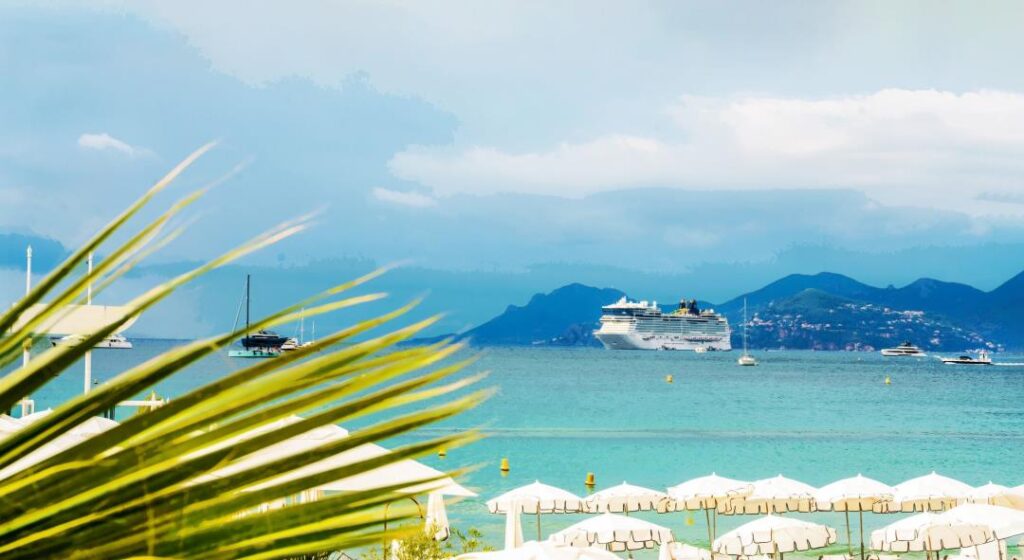
The French Riviera resort of Cannes is set to implement “drastic regulation” on cruise ships, as announced by its city council. Starting next year, any vessels carrying more than 1,000 people will be banned from its harbor. This move aligns Cannes with a growing global backlash against overtourism, a phenomenon that has sparked water-gun protests in Spain, a surprise strike at the Louvre, and public outcry over high-profile events such as Jeff Bezos’ and Lauren Sanchez’s recent wedding in Venice.
Cannes city councilors, who voted on Friday to introduce these new limits, aim for cruise ships that are “less numerous, less big, less polluting, and more aesthetic.” From January 1, only ships with fewer than 1,000 passengers will be allowed to dock in the port, with a daily cap of 6,000 passengers disembarking. Larger vessels will need to transfer passengers to smaller boats to access the city.
Balancing Tourism and Environmental Concerns
France, which attracted approximately 100 million visitors last year—more than any other European country and surpassing its own population—is at the forefront of efforts to balance the economic benefits of tourism with environmental sustainability. Cannes, a major destination for cruise ships, has experienced significant economic gains from this sector.
Mayor David Lisnard emphasized in a statement, “Cannes has become a major cruise ship destination, with real economic benefits. It’s not about banning cruise ships, but about regulating, organizing, setting guidelines for their navigation.” This nuanced approach seeks to maintain the city’s appeal while addressing the environmental impact and congestion caused by large cruise ships.
Industry Reaction and Economic Implications
The cruise industry has expressed concerns over such restrictions, arguing that they could be detrimental to both destinations and passengers. On the day of the announcement, two cruise ships, each exceeding the upcoming 1,000-passenger limit and with a combined capacity of over 7,000 people, were scheduled to dock in Cannes. The owners of these ships have yet to comment on the new regulations.
According to industry experts, these changes could lead to a shift in cruise itineraries, potentially impacting local businesses that rely on the influx of tourists. However, proponents argue that the long-term benefits of sustainable tourism practices will outweigh the short-term economic drawbacks.
Historical Parallels and Future Outlook
This development follows a trend seen in other popular tourist destinations. For instance, Venice has implemented similar measures, including a ban on large cruise ships from its historic center, to preserve its cultural heritage and reduce environmental strain. These actions reflect a broader shift towards sustainable tourism, a concept gaining traction as cities grapple with the challenges of managing large tourist volumes.
As Cannes prepares for these changes, the city is likely to serve as a case study for other destinations facing similar issues. The effectiveness of these regulations will be closely monitored, providing valuable insights into the balance between tourism and sustainability.
Looking ahead, the success of Cannes’ new policy will depend on its ability to enforce these regulations and adapt to the evolving needs of both residents and tourists. As the city navigates this transition, it remains committed to preserving its unique charm while fostering a more sustainable tourism model.







